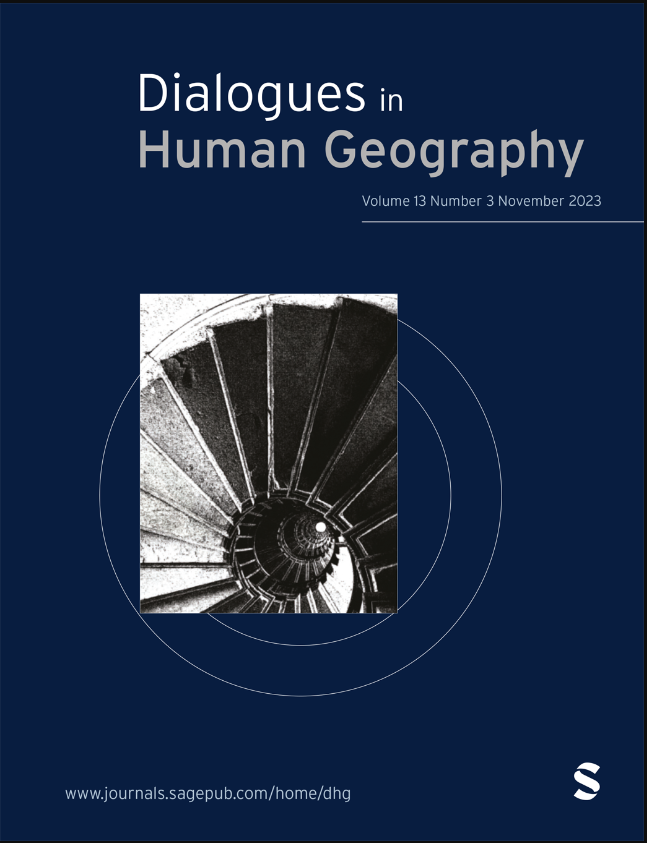To whom does geography owe a future? Lessons from urban studies
IF 9.6
1区 社会学
Q1 GEOGRAPHY
引用次数: 0
Abstract
The stresses of the neoliberal academy relating to the precaritisation of labour and metricisation of research can often make it difficult in the present to envision a future of geographical thought and praxis which is capable of addressing the past and present epistemic injustices which human geography has inherited. Within the field of urban studies, the discourse of ‘urban futures’ has often been used to promise a more just and efficient future. This commentary takes the often-evoked notion of an urban future and considers how recent research in urban studies has sought to deconstruct the notion of the ‘urban’ in order to illustrate the complex and antagonistic present underlying such futures. Here urban studies has an analogous lesson for human geography more generally. Disaggregating the identity of ‘geographer’ from academic status and training can open up new practices for the co-production of knowledge beyond professional boundaries, which themselves can also aid in the creation of more just urban futures.地理学欠谁一个未来?城市研究的经验教训
新自由主义学院的压力与劳动力的不稳定和研究的计量化有关,这往往使目前很难设想未来的地理思想和实践能够解决人类地理学所继承的过去和现在的认识不公正。在城市研究领域,“城市未来”的话语经常被用来承诺一个更公正、更有效的未来。这篇评论采用了经常被唤起的城市未来的概念,并考虑了最近的城市研究如何试图解构“城市”的概念,以说明这种未来背后的复杂和对立的现状。在这里,城市研究对人文地理学也有类似的启示。将“地理学家”的身份从学术地位和培训中分离出来,可以为超越专业界限的知识共同生产开辟新的实践,这本身也有助于创造更公正的城市未来。
本文章由计算机程序翻译,如有差异,请以英文原文为准。
求助全文
约1分钟内获得全文
求助全文
来源期刊

Dialogues in Human Geography
GEOGRAPHY-
CiteScore
8.00
自引率
4.00%
发文量
86
期刊介绍:
Dialogues in Human Geography aims to foster open and critical debate on the philosophical, methodological, and pedagogical underpinnings of geographic thought and practice. The journal publishes articles, accompanied by responses, that critique current thinking and practice while charting future directions for geographic thought, empirical research, and pedagogy. Dialogues is theoretically oriented, forward-looking, and seeks to publish original and innovative work that expands the boundaries of geographical theory, practice, and pedagogy through a unique format of open peer commentary. This format encourages engaged dialogue. The journal's scope encompasses the broader agenda of human geography within the context of social sciences, humanities, and environmental sciences, as well as specific ideas, debates, and practices within disciplinary subfields. It is relevant and useful to those interested in all aspects of the discipline.
 求助内容:
求助内容: 应助结果提醒方式:
应助结果提醒方式:


